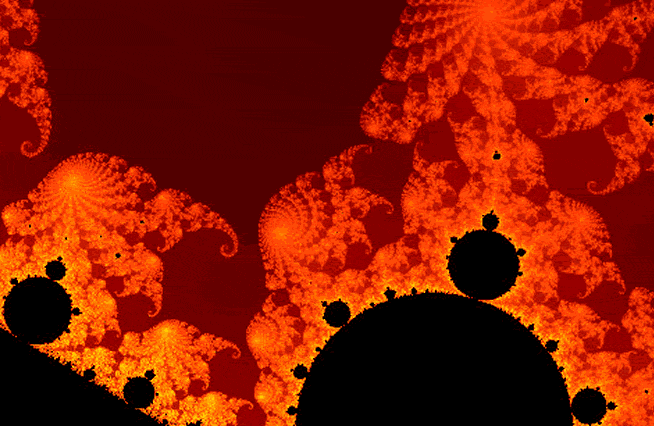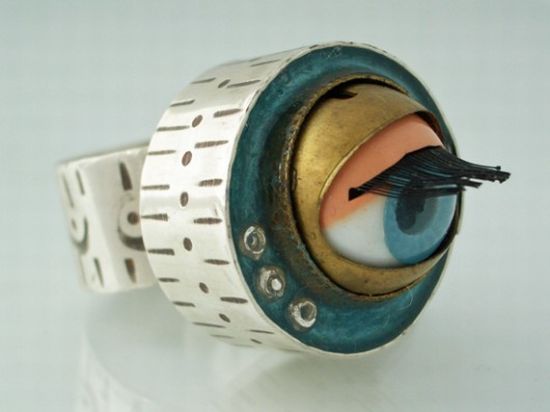Crime I understand; the transgression of an understood code of behaviour subscribed to by the majority of a group. Punishment I do not understand in this same context, beyond a very limited point, despite the fact that this is how it almost always is in our world these days.
Crime + Punishment.....= ???
For a group of individuals to enjoy the benefits of collective living (for example in a country, or village, or family or whatever) there generally needs to be some set of agreed behaviours which are either practised or not practised, or both. We usually call these things laws; sometimes morals or ethics. It is often the case in these systems that some line is drawn through those standards of behaviour expected of the group members, whereby transgression goes beyond a point acceptable to the group - defining a core principle, if you will. These selected core principles are (again, generalising) traditionally centred around those which it is generally believed that transgression of which will do harm to the group members, and/or the group structure and stability. We call such transgressions crimes, or sin, or any one of a number of names.
Not that behaviours constituting crime or sin are intrinsically, necessarily bad, or evil. They are more like weeds - plants growing where you do not wish them to grow. Behaviours occurring where the social contract does not agree they should.
Of course, it's rare indeed for a society to spring up as a fully formed perfectly arranged entity, so these codes of behaviour are mainly today what you'd call legacy systems; they have evolved and grown (or not) over time, and often contain incongruent, irrelevant or just plain stupid bits left over. This happens in natural evolution all the time. Every now and then, we get around to changing or purging the stupid bits, usually not without pain though, and things move on. I think everyone recognises this pattern.
A while back I recall reading a few studies that suggest there's a more or less fixed proportion of pathological transgressors in your average mainly-democratic, non-tyrannical society these days - and we're all probably familiar with statistics about those who repeatedly break traffic and driving laws, for example. But for now I want to zero in on some of the modern day biggies - like murder, serious assault (of all kinds), property crime and heresy. Alright, sorry, I'll back up a step and we'll start with, say, murder. Covers most bases, that one.
Murder can simply be defined as unlawful killing here, to make a distinction between the sometimes socially condoned killing done in events such as war and.....as punishment. Most cultures hold murder to be a crime. This brings us back swiftly to the nub of the issue too - why are punishment and crime so seemingly inseparable?
(a murder)
I will assume that we are not naturally perverse (an oxymoron?) in having rules just there to be broken, and that crime is defined as something we wish to prevent, rather than have occur and then deal with. Why is it then that in the face of all available evidence punishment is seen as a sensible and effective way to prevent crime?
Personally, I think it's a bullshit mechanism we have going to avoid having to deal with some heavier truths about ourselves and the way we live. A now-distorted legacy of a simpler, perhaps more natural time, maybe.
If you think punishment can act as a behavioural deterrent, then you're right, it can. In this sense it may be able to help in the prevention of crime, but the consequences and downsides of a punitive approach (for all parties involved) are, none of them, positive or life-affirming. Compliance becomes more important than willingness to be at one with the group. The costs (economic and emotional) of policing compliance are invariably great given pathological background levels of transgression, and as we know from things like our modern day experience with illicit drugs, entrenched social disadvantage of historical minority segments of the population and the incarceration system, things can fuck up for everyone very thoroughly indeed. Anyone who thinks they're not affected badly by the emphasis on punishing crime over harm minimisation and consensus building in managing citizen's behaviour at the grassroots peer level possibly just needs to look around a bit more. Consider also the maxim that 'energy flows where attention goes' - lately referred to as 'the law of attraction' and so on. We dedicate enormous resources into detecting and separating out transgressors through policing and like organisations, and the logical follow-on is that we are thus going out looking for trouble - and thusly finding (perhaps contributing to) it. Or am I wrong?
Now I'm no saint, as all of you surely know. I suffer punitive urges from time to time, but am coming to understand a little more honestly where these things come from. Let's look at a personal example.
A little while ago (ironically the same day I bought my new rhinoceros) I saw a news item about the death of a female rhino in a small wildlife reserve in Africa. Not many things move me to hatred of my fellow humans, but this is certainly one of them. Sure, I have a thing for rhinos, but this would feel the same with any animal. What had happened was this. A few weeks earlier the local bull rhino had already suffered the same fate, presumably courtesy of the same poachers. The news item framed our rhino momma from the back, legs stuck out in rigor mortis, and showed us where the tranquilliser dart had hit. The reporter explained that her young calf would have been very nearby, watching, of course. The camera then walked us around her body, now looking down along her enormous and beautiful face, to where a massive raw ellipse lay - the wound remaining where the poachers had very simply used a chainsaw to cut off her horn, leaving her to slowly bleed to death from the wound. The fuckers did not even have the animal decency to put her out of her pain, or spare her calf such a drawn-out ordeal.
I began to fantasize about it being nighttime, and hearing the tranq gun shot, seeing her form slow, stumble, and lay down. Now I can see outlined against the sky a pair of shadowy forms moving towards her, the first going through the motions of starting a chainsaw. I am seeing this through illuminated crosshairs. I feel my trigger finger tighten, and do not hesitate. It is a head shot, instant kill, and the other poacher runs off. I let him go.
This is obviously a revenge fantasy but for a few minutes there I was in such thrall to the moment that I felt as if I believed I would have done exactly this, given the chance. Of course, simply firing a warning shot would have saved the rhino, and foiled the poachers. But for some reason it seemed necessary to my healing and recovery process to go through an eye-for-an-eye sort of scenario. Why is that so?
It's OK. This beauty's just asleep.
You see this stuff over and over in the media, aggrieved families crying for 'justice' when what they mean is punishment. Murder, war, even natural disaster where the ruling authorities are sought for punishment for the sins of not preventing or responding to the situation in a way that they might have. Yet I have never come across an instance where anyone has been satisfied or healed with a punitive outcome. Ever. Have you? Further to that, I know of many who live with constant shame (whether they consciously realise it or not) from wishing ill of others, even those who have 'done them wrong'.

One reason I am not surprised at my fantasy is that in a very real sense I have no problem deleting such behaviour (the cruelty of such senseless animal slaughter) from our society, and in a more specific sense I have no problem deleting pathological perpetrators of heinously damaging behaviour completely from our world. I acknowledge that their death can be one way this is brought about, even though I do not support a death penalty or vigilante slaying of even certified, incontrovertibly guilty parties. But if someone is killed in the moment, to prevent say a rape or murder, then this seems to me as if it could be sometimes entirely appropriate - certainly so where it is the only possible alternative outcome. But it's not as if you could ever make a rule or lay down a code of ethics in a one-size-fits-all way that would codify whether any specific instance like this might be acceptable.
For that we have to go beyond our intellect, beyond philosophy, and into the realm of shared spirit and emotion, and to be sure we respond to each event singularly, not as a cipher for any other such past or imagined moments.
This means we can never appoint a judge, as we are all so different. And this leads us into the slippery and scary world of anarchy and chaos, where we meet real issues of trust, faith and our intrinsic place in nature, as animals and actors in the great thing we call life.
It's been said that if you find yourself hating with a passion that it's something inside yourself that you're really hating. This sort of thing has been phrased a thousand ways, and broadly it's a concept I see truth in. So why is it that most (if not all) of us have this punitive urge at least sometimes? It's an emotional rather than a rational response for sure, and concepts like deterrence or incarcerative rehabilitation are essentially intellectualised salves to this punitive response syndrome.
Maybe it's a carry-over from an earlier time in our development. Most animal societies work on fairly recognizable carrot-and-stick principles of training young in acceptable social behaviour. Basic survival behaviour does tend to sort itself out after all (you either learn how to get food and run away from predators or you don't and then die) but more sophisticated levels of survival behaviour - those that affect the wellbeing of other herd members - are typically taught in ways we can relate to. Get it right, receive encouragement. Get it wrong, get told off or whacked on the head. At a really simple level, I suspect we've taken this quick corrective slap way out of its useful zone, and intellectualised it up into the
ne plus ultra of deterrence technology.

Animal societies in less dominant ecological positions than we believe ourselves to be in have a great deal of weeding out going on with regards effective basic survival behaviours, as I noted above, but also in terms of survival attributes. We don't. We have created these welfare systems whereby we usually nurture our sick, weak and elderly, and this must in some deep way grate against our older instincts to live in a healthy, dynamic herd with a greater survival probability than one laden with supported passengers offering minimal utility to the greater good, so perhaps given this development we put even larger emphasis on behavioural compliance with the other dangerous members of the clan - criminal transgressors. Those who endanger us directly or by making us more vulnerable to predation or other environmental insecurities. Then again, it seems the last decade's worth of natural and man-made disasters around the globe is increasingly showing us we do in fact accept massive losses to our human family as part and parcel of life - and perhaps even in an unspoken way some of us welcome the culling out of unsustainable numbers and behaviours that we now know pose a threat to us as a whole.
But this last does not make it less sad, less tragic, or make us less likely to have a "who is to blame and how can I make them feel this suffering too" sort of response.
Maybe the punitive response is also partly from our sheer power as a species - we now act with the judgmental authority once ascribed only to Gods. To exercise wrath and vengeance appeals to our ancient sense of celestial justice, which we appealed to (or invented) in our very early days in an attempt to influence or at least somehow explain the vicissitudes of the world around us. We did not perform the necessary rituals so the Gods did not flood the river this year, and our crops wither and die. Therefore we shall take it upon ourselves to act as proxy for the Gods and punish preventatively those who do not perform the necessary rituals for flooding so that the Gods might see we are at least trying to do 'their' will and to make ourselves feel more secure by such efforts.

It makes many people feel powerful to execute murderers. It makes many people feel safer that murderers are executed. Then again, carrying a gun seems to make many gun owners feel safe - safer than if no-one was supposed to carry one, ever. It's a feeling thing, not a logical thing.
Facts do not back up punishment as effective in any way at all as a tool for social betterment. Quite, quite the contrary. Of course, I could be wrong, and am willing to run the risk of receiving such punitive outbursts from others that I have in the past received for just such an infraction - whether real or imagined. Luckily, for the most part I do not attract too much vitriol. With so much of it polluting our whole world though, wearing a bit from time to time is pretty inevitable, yes?
Inevitable because punishment is not just how we treat heinous trangressors, it's something that bleeds over into how we feel it acceptable to react in most of our everyday lives given the 'right' stimulus, and even how we treat ourselves. The stories we tell ourselves are too often so very, very full of punishment, trangression, and self-loathing. Suicide takes more lives than car crashes and murders combined. It is in fact the largest single cause of death in modern armed conflicts. You know, I don't believe this is entirely healthy.
Punishment is what we mete out when we think it's OK to get angry at someone who has pushed our buttons by disagreeing with us, for example. It is what we are performing when we choose to hurt someone knowingly without it being an entirely necessary (ie when there is NO other option) correction to a key behaviour that directly threatens an individual's survival probability in a meaningful way. Or even when we do this unknowingly, because that too comes from within ourselves. Many, many people live their lives with punitive justice - righteousness, call it what you will - as the key moral compass or behavioural determinant of their lives. And because so many of us make the mistake of perceiving such a trait as being a powerful thing which is good for our collective safety, we tend to elect or otherwise elevate many such people to positions of power; thus further entrenching this most unfortunate cultural underpinning.

All of this is such a part of our mental, societal and emotional furniture now that deep paradigm shifts are required to change it. Happily, I feel this is happening even now.
What are the alternatives to dealing with crime/sin/transgression then? And let's just for the sake of this chat rule out such zen concepts as saying "there is no crime".
Ostracism is the oldest and maybe most naturalistic behavioural corrective there is. These days we use it as punishment and call it jail or deportation in the main. Super Nanny combines it with stimulus deprivation and calls it the naughty spot or time-out corner or somesuch. I remember hearing a possibly apocryphal tale of certain Inuit deciding by consensus when a transgressor had gone beyond the pale and that they would then just throw rocks at them until they went away. Amish call it shunning. All of this is essentially the same from a practical standpoint, removed only by degree, as capital punishment. It removes the problem person from society - either as a short-term illustrative threat as with the naughty corner, or jail - or permanently. But there are of course a couple of issues, the first being that all of this still puts the cart before the horse and does not look at prevention of unwanted behaviour (except as deterrent, perhaps) and secondly that all this stuff is still very much prone to be carried out and conducted punitively anyway. With the emotional intent to harm the transgressor and exact some retribution or redress via their suffering.
I think the matter of prevention is truly quite simple, at least in theory. I see two roads you could go down. The first is the road of no rules - anarchy, chaos, the Law Of the Jungle - and this is arguably the closer road to how we live now. To strip it to its basics, the strongest - whatever that means from one context to another- survive by enforcing their wills and ways on the environment most effectively. In fact this is exactly how we live now, it's just that so many of the rules we have adopted for harmonious living have become tools of those seeking to be the strongest; we have them as political persuasives and ideologies. We've not escaped this Darwinian standoff.
The second way actually assumes the first as a principle - the fittest survive - and then assumes that 'fittest' means 'best able to cooperate and contribute harmoniously, without wasted energy on conflict'. My life experience is that seeing compliance as a goal is far from futile in and of itself, but is an ultimately self-defeating strategy if you want things like personal happiness and contentment as outcomes, along with social harmony, creative growth, freedom of expression and economic (environmental) security. Far better is a situation where those who wish to participate are the participants, and those who do not wish to participate either leave or exist only as marginal members, not enmeshed with the group aims and not able to avail themselves fully of the group gains and benefits. Sure it's utopian, but there is nothing wrong with that.

For sure no-one really has all the answers about how to get from here to there or what there even looks like, but one thing I'm pretty certain about is that it's something no amount of legislation or top-down social engineering is going to achieve for us. We can outlaw commonly punitive behaviour and practices and that may be a good start, but if the means by which we deal with those who break those laws is with punishment then.....no, we need to remember to go back to first principles and prevent the problem in the first place.
Horse guy and genius of emotional intelligence Monty Roberts calls his way of working with horses - and people - 'join-up'. This is whereby two parties (say, a horse and you) agree to be partners in certain ways, accept one another as you really are, and agree that behavioural compromises will be made by each of you to accommodate the other's requirements. You won't harm the horse or give her mixed messages about what you are asking of her from moment to moment, and she won't hurt you either. With this setup, as opposed to a compliance-oriented scenario, not only is everybody happier and performing their roles more easily, joyfully and expressively, but if and when some shit does hit a fan locally then the bond is there that better ensures mutual co-operation in matters of survival. Compliance breaks under stress. Genuinely respectful friendship rarely, if ever, does.

For me, here is the key. The ability to recognise in a stressful moment that the transgressor who has pushed your buttons in such a way that you want them punished still deserves the basic respect for who they truly are as you wish for yourself. And to get past that feeling. Now. Certainly, action may need to be taken to set aright their behaviour for the greater good of all (or you, or them, whatever) but once we remove the emotive urge to punish then we can far more freely, creatively and effectively deal with the situation and help facilitate change. If we had this as an expectation, rather than the threat of punitive suffering, my contention is that the whole big show we refer to as civilisation would have a far brighter face - and may even offer us a greater chance of survival than we currently seem to think we have. It allows for join-up. Fear of being beaten does not.
The other key part of all this is personal responsibility. For such a partnership to form (or such a social contract) then it is implicit that each party is offering to be responsible; to behave well and with the other parties' wellbeing also always in mind. Seeking punishment for others by appealing to law, or authority, disempowers us and make us less responsible for what we do in our lives. We each need to be responsible for the assistance of our neighbour when they transgress - and not to just insist a third party or 'higher' level of authority protect us from this empowering birthright - the right to be free. For without personal responsibility, I really don't believe we can feel, or be, free.
I think it has to be one of those tipping point things though, and I see it drawing closer every day. The media are now more likely to show the forgiving families of 'victims' of harmful behaviour alongside those baying for longer and harsher punishments. More meaningful debate is being had about things like harm minimisation over criminalisation of drugs of abuse. Recognition is being more often given - albeit slowly - to systemic, historically based entrenchment of punitive disadvantage of many minorities, another great wall against the trust required for anything like 'join-up' to occur.
We don't need a majority of people who make it our aim to change themselves from habitual punishers (even if you only do it every now and then but it's unthinking, it's a habit, OK?) into those who would rather forgive and take responsibility in the moment for doing our best to respond in a life-affirmative way to transgression - real or imaginary. This also makes us feel more free to seek genuine forgiveness for our own transgressions, further freeing us from guilt - a faithful old cyclical motivator for pathological transgression. No, we don't need a majority, we just need a critical mass. I don't know what that point is, but I do know that such masses erupt spontaneously here and there, from time to time, and as often as not go entirely unrecognised.
It's one of the reasons why we're so attracted to watching natural disasters on the news - because one of the first things that happens is that all the bullshit goes out the window and most people affected shift into that space of honesty where there's no time or space for vengeance or the seeking of justice. Survival trumps all. Of course, then we so often see the pendulum swing back........
One day soon I hope, we'll see something much larger than we've seen before. But it all does start at home, doesn't it?






























